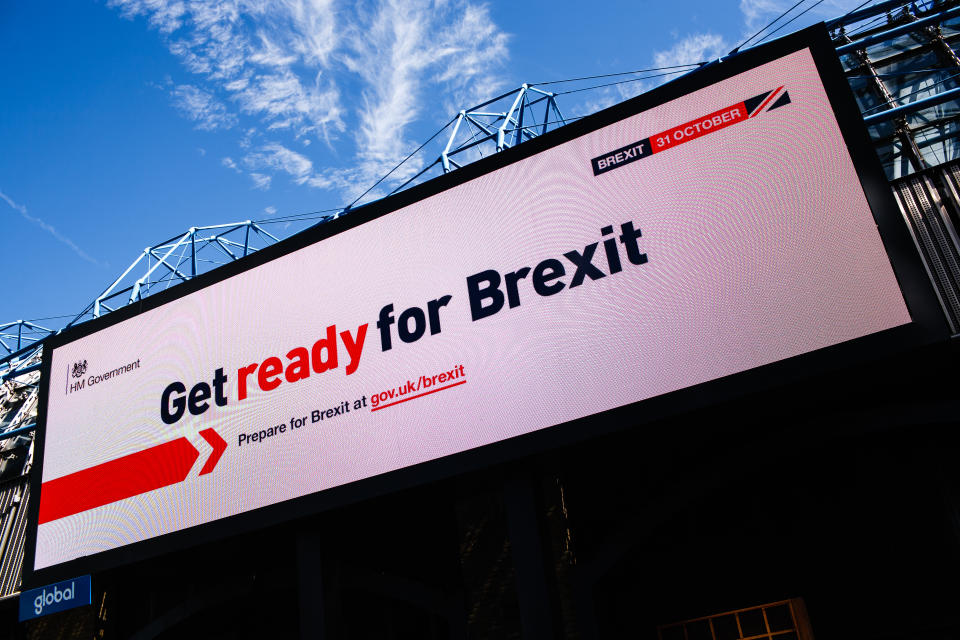UK government to spend £4.5m on ‘shock and awe’ Brexit ad campaign

The UK government has signed a £4.5m ($5.6m) deal for a public information campaign that will use “shock and awe” tactics to prepare citizens and firms for the end of the Brexit transition period.
The campaign, devised by media agency MullenLowe London, will warn about “the consequences of not taking action” ahead of 31 December, when the UK leaves the EU’s customs union and single market.
“The primary focus of this phase of campaign activity is to ensure that businesses and citizens are aware of the changes that may impact them and the actions that they need to take, before the end of the transition period,” according to a briefing document on the campaign.
Between July and August, the campaign aims to “inform” about the consequences and “nudge” residents into taking action now.
But from September, the campaign will move into what the document calls the “shock and awe” phase, using terminology typically used in military settings to describe overwhelming power and spectacular displays of force on the battlefield.
READ MORE: Bank of England to boost stimulus measures but hold fire on negative rates
The term, coined by US defence strategists, entered the public consciousness during the 2003 invasion of Iraq.
There will be further phases of the campaign from December and January, once the transition phase has ended, according to the document, which calls the initiative “the most important government campaign this year.”
The document advises that polling from January 2020 found that 74% of UK adults had not done anything to prepare for the UK’s departure from the EU, believing that they do not need to or expect any changes.
Only 8% of people had taken action, and only a further 9% said they planned to do so.
The contract with the media agency was found on Tussell, the government procurement database.
According to the briefing document, the Cabinet Office believes that businesses are reluctant to take action without certainty.
It notes that those who voted to leave the EU are less likely to prepare, since they do not believe in any potential negative consequences of leaving.
READ MORE: Culture secretary hints at theatre bailouts as job cuts bite
The document also warns that 73% of individuals say that, since the UK has already officially left the EU, they want to see less media coverage of Brexit.
“But this doesn't mean they are not interested in the underlying issues or implications of leaving the EU,” the document advises.
Prime minister Boris Johnson must decide by the end of June whether to extend the transition period beyond the end of 2020.
Amid the coronavirus crisis, a looming recession, and expectations of a prolonged economic recovery, his government has faced growing calls to request an extension to the transition, which would guarantee frictionless trade with the EU for a longer period.
The UK government has nevertheless said it will not seek an extension under any circumstances, leaving it just over six months to strike a trade deal that would under normal circumstances take years.

 Yahoo Finance
Yahoo Finance 
